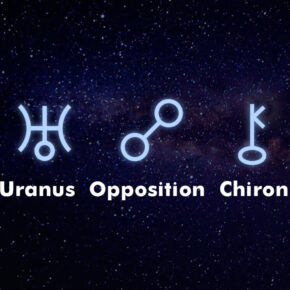Complaints about beriberi can be heard very often, especially in the off-season. In this case, it is often recommended to drink certain vitamins and dietary supplements, and they are also reminded that the body cannot work properly without them. Is it true? What kind of trace elements does the body need and how to choose products that will not only not harm, but will also be very useful? Let’s talk about this further.

What are dietary supplements and vitamins?
Vitamins are organic substances, thanks to which our body works properly, and all the necessary chemical reactions proceed without interference. Most of them (except D, K and B3) are not synthesized by the body on their own – we get them through food and various supplements like boron supplement. At the same time, the dose that is necessary for the normal functioning of the body is quite small – only about 100 mg per day.
Dietary supplements are considered natural (or identical to natural) biologically active substances that must be taken with food. They are used to promote general health, but not to treat various diseases. Evidence that they work is not enough.
How do distinguish dietary supplements from medicine?
On packages with dietary supplements, you can see the mark “not a medicine”.
Of course, the best way to fully “cover” the body’s needs for nutrients is to follow a balanced diet. However, under certain circumstances, this may not be possible. For example, this often happens with it. D or Omega-3 polyunsaturated fatty acids.
The main point to note when talking about supplements is that they are used strictly to supplement and not to completely replace the nutrients in your diet.
Natural foods contain varying amounts and combinations of truly beneficial nutrients. For example, citrus fruits are “popular” for their high vitamin C content, leafy greens are considered a source of vitamin K, and almonds are considered a source of vit. E. Plant-based foods are also loaded with antioxidants and phytochemicals, classes of compounds that help reduce inflammation and reduce the risk of chronic disease. Whole foods also contain protein, healthy fats, and fibre, which are essential for overall health and optimal wellness.
Since supplements are only used to supplement, not replace, a healthy diet, they tend to contain only concentrated amounts of specific nutrients and may not provide all the variety you need.
However, in case of deficits of varying degrees or the need for additional support, dietary supplements can be real helpers for you.
Do children need to take supplements?
Most modern doctors say that there is no need for a child to take additional multivitamins. The most important thing for parents is to create a diet that includes fruits and vegetables, grains, dairy products, meat, fish and seafood.
Some experts say that children should take only vitamin D in the standard norm for them, and all other trace elements are already present in food. This trace element ensures normal growth and formation of the skeleton and is responsible for dental health and the proper functioning of the immune and endocrine systems, so it is added to modern milk formulas.
Multivitamins and supplements should also be given to children who follow vegetarian, vegan, or other diets, and to those whose underlying medical conditions may be causing nutritional deficiencies. But in these cases, it is necessary to select drugs exclusively with the attending physician, and not independently according to the recommendations on the Internet and instructions.
How do vitamins help the body?
It is widely believed that vitamins save us from beriberi. However, doctors call beriberi exclusively a “Russian diagnosis” – in other countries, as a rule, it is not put, and it is not at all in the International Classification of Diseases. If you have a shortage of some substance, you will feel it. As an example, scurvy is often cited, which develops with a lack of vitamin C. The symptoms, in this case, are quite vivid, it is impossible not to notice them. But in our time, scurvy is practically not diagnosed. Usually, a real deficiency occurs in people from very poor countries, where there is not enough basic food rich in the right substances.
But the articles about the fight against “spring beriberi” that are constantly published in various online publications are just an attempt to sell more drugs. In these cases, avitaminosis is mistakenly associated with fatigue, pallor of the face, malaise due to sudden changes in temperature or a change in daylight hours. Unfortunately, only such means to cure such manifestations are unlikely to succeed.
There is also the phenomenon of hypovitaminosis – partial vitamin deficiency. Hypovitaminosis is often found in women or in people who follow certain diets (for example, vegetarians). But even in this case, the need for additional supplements can only be determined by a doctor after medical research, and on his own, just by seeing his reflection in the mirror, it will not work out right.
Modern scientists question the need for any additional vitamins for most people. Until now, there are no reliable studies that would accurately justify and recommend the additional intake of such substances in food. But their overabundance may well have an extremely negative effect on the body.
If you doubt that you are following the consumption norms correctly, then it is better to familiarize yourself with the recommendations of the World Health Organization.

How can dietary supplements help?
There are cases when dietary supplements are prescribed by doctors even for the treatment of various pathologies. Of course, these are not simple herbal preparations, but all kinds of supplements with some kind of active ingredient. Usually, the doctor prescribes such a treatment regimen when there is no access to suitable medications or a deficiency of vitamins and trace elements has been proven. At the same time, dietary supplements, of course, cannot get rid of chronic diseases, and if you heard about this, there is no doubt that this is an attempt to deceive you.
Dietary supplements can also be used when playing sports. Studies by foreign scientists confirm that the effectiveness of training increases with a moderate intake of caffeine and creatine. With these additives, intensive loads are more easily tolerated. But you shouldn’t overdo it!
If you are already taking dietary supplements, be sure to tell your doctor about it. Otherwise, there is a danger: supplements can react with drugs that you will be prescribed to treat various diseases.








